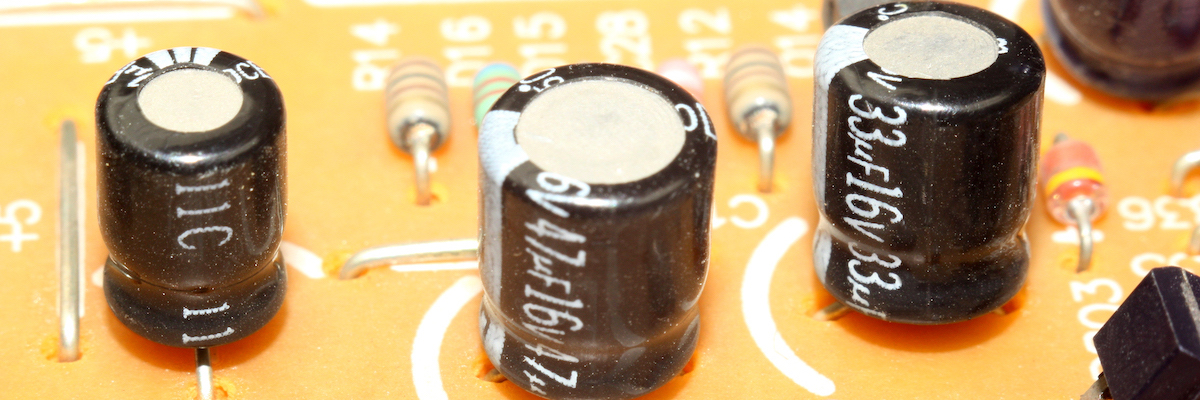How to Calculate Capacitance

To learn how to calculate capacitance, you must first know the answer to the question, “What is capacitance?” Capacitance is the measure of a capacitor’s ability to store charge. This ability is measured in units called farads, named after Michael Faraday. However, many of the devices used in electronic circuits hold capacitors with capacitance that can be measured in subunits, such as microfarads or nanofarads. Learn more about capacitors and calculating capacitance below!
What is a Capacitor?
Next to inductors and resistors, capacitors (or “caps”) are one of three fundamental electronic components. Structurally, they’re simple devices. They include two conductors, or plates, which are separated by an insulator known as a dielectric. The plates are connected by leads and the capacitor itself is coated or encased for protection. Different materials can be used to build the plates and dielectrics, resulting in unique properties and capacitance measurements. Here’s what you can do with caps:
- Store a Charge: Capacitors can deliver energy to other circuit components when no other voltage source exists.
- Time an Event: Paired with a resistor, a capacitor can time events in a circuit like a light illuminating or a bell sounding.
Finding Capacitance
There are a variety of formulas you can use to find capacitance, but it’s defined by this equation:
- C = charge / voltage
- Capacitance C, measured in farads, equals charge Q, measured in coulombs, divided by voltage V, measured in volts.
Let’s say you connect a 12-volt battery to a capacitor. The battery charges the capacitor with 4 coulombs of charge. Based on the equation, the capacitance is 4/12, or 0.33 farads. Capacitors with higher capacitance can store more charge, even when connected to the same 12-volt battery. As stated above, the physical characteristics of a capacitor will affect its capacitance measurement.
Learn More With Gateway Cable Company
Whether you’re using capacitors to rebuild an audio system or create sensors, Gateway Cable Company can help. Our team of experts can answer any questions you may have about finding capacitance, or other points of interest like electrostatic discharge, testing a fuse, and testing a relay. Contact us for a quote on any of our products!
